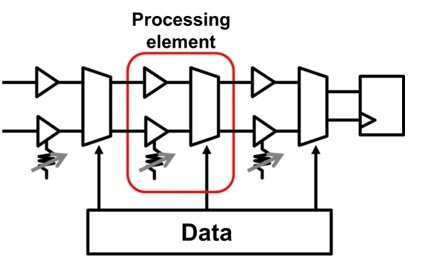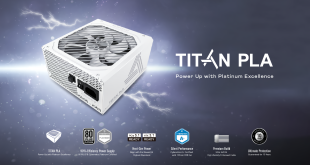While we might need to fear the internet of things (IOT) causing ever larger DDOS attacks, there's no denying that that network of devices will become more important in the years to come. That's why Toshiba is looking to power it with its own hardware. It's developed a new analogue processor which could be used for deep learning on the IOT.
Typically deep learning, the practice of using high level abstractions to find solutions to complex problems with machine learning, requires a lot of processing power. Toshiba's analogue system and Time Domain Neural Network does away with that, by networking a huge number of these processors together to allow for many simultaneous calculations, with a much reduced power footprint.
“The most effective way to reduce movement of a datum is to have massive numbers of processing units, each dedicated to handling only one datum that is located close by,” Toshiba explained. “These datum points are given a weight during conversion of an input signal (e.g. an image of a cat) to an output signal (e.g. the recognition of the image as a cat). The closer the datum point is to the desired output, the higher the weight it is given. The weight provides a parameter that automatically guides the deep learning process.”
This is similar to the way the human brain works, essentially storing the importance of data within individual neurons. By doing so, typically high-processing, high-energy-using deep learning can occur in much simpler hardware, but on a larger scale.
Toshiba's individual processing chips are made up of three logic gates and a single bit of memory and in concept chips, has shown that their comparable energy consumption to conventional hardware is around a sixth. Energy efficiency is expected to improve with further iterations. The end result it hopes, will allow for deep learning on all sorts of low-level devices, letting them improve their abilities over time through understanding how they are used.
KitGuru Says: Don't expect this sort of tech to show up in your connected camera any time soon, but it's an interesting direction that Toshiba is taking development.
 KitGuru KitGuru.net – Tech News | Hardware News | Hardware Reviews | IOS | Mobile | Gaming | Graphics Cards
KitGuru KitGuru.net – Tech News | Hardware News | Hardware Reviews | IOS | Mobile | Gaming | Graphics Cards



